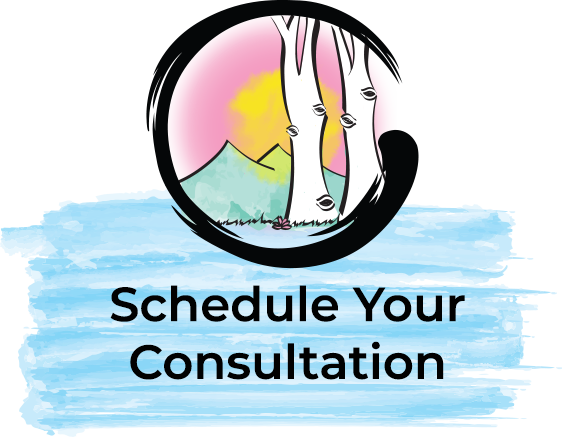By - July 26, 2021
Categories: General
B12 (also known as cobalamin by almost no one), is a critical vitamin that plays a roll is a ton of bodily functions. It helps to create red blood cells, synthesize DNA, and is important in neurological function.
Typically we get vitamin B12 from meats, fish, poultry, eggs, and dairy. Sometimes other foods such as breads or plant-based milk will be fortified with B12 as well, however if you follow a vegetarian or vegan diet you are definitely at a higher risk of B12 deficiency.
What happens if I don’t get enough?
There are a few reasons you might not be getting enough B12, besides your dietary lifestyle choices. As you age, it becomes harder for you to absorb B12 from the food you eat. In addition, there are certain bowel conditions that can prevent you from properly absorbing the vitamin, like Crohn’s disease, celiac disease, or even parasites. If you’ve had surgery (like weight loss surgery) that removes part of your bowel, that can interfere with absorption. And even some medications can prevent proper absorption of B12. Some heartburn medications are notorious for this, as well as certain diabetes medicines such as metformin.
If you do have a B12 deficiency, you can expect symptoms like:
- Weakness, tiredness, or lightheadedness
- Heart palpitations
- Shortness of breath
- Pale skin
- A smooth or swollen tongue
- Constipation, diarrhea, and/or gas
- Loss of appetite
- Nerve problems like numbness or tingling, muscle weakness, and problems walking
- Vision loss
- Depression or behavior changes
- Memory loss
What are the benefits of B-12 shots?
Increased energy – B12 functions (at least) 2 ways to fight fatigue. It helps to increase mitochondrial energy production within your cells, and it help with red blood cell production. Your mitochondria are the energy-producing powerhouses of your cells, so making sure these are properly function literally energizes you from the cellular level up. Your red blood cells are responsible for carrying oxygen throughout your body, and I think we all understand that lack of oxygen can cause you to feel weak and tired.
Improved concentration & mood – One of B-12’s many many rolls is to help process serotonin (a chemical responsible for regulating mood. A wide array of anti-depressants have been created specifically to help regulate your serotonin levels, but these often come with a variety of side effects. B12 helps the body to naturally regulate serotonin, helping with stress, depression, anxiety, and even memory loss and brain fog. And that’s not even getting into the mental improvements that can come just from having the energy to do the things that you love!
Hormone balance – B12 (along with B6, folate, and other nutrients) is involved in a process called methylation, which our liver uses to detoxify substances and metabolize estrogen. Without this process, estrogen can build up in our systems and cause hormonal imbalances which will absolutely ruin your day. And if that’s not bad enough, there’s evidence linking B12 deficiency to things like infertility and an increased risk of breast cancer.
Improved sleep – So remember how I mentioned that B12 is important for energy regulation in your mitochondria? Well, energy regulation doesn’t just mean increasing energy levels. It also means decreasing energy levels at the proper times so we can sleep. We all know there are tons of factors that can mess up our circadian rhythms (sleep/wake cycles), but getting your cellular energy cycles right is a great way help you fall asleep and stay asleep at the proper time.
Heart health – We already talked about how B12 helps to support our liver function through its role in methylation. One of the other toxins that methylation helps to clear out is called homocysteine. Elevated homocysteine levels have been associated with an increased risk of heart disease (and is another toxin that messes with your brain chemistry, further messing with mood and concentration).
Neurological Damage – B12 is critical for brain and nervous system development during pregnancy. But it’s not just pregnant people that benefit neurologically from B12 – there are indications that the vitamin may play a role in preventing brain atrophy. This is a big deal, because brain atrophy can lead to conditions like dementia. Additionally, a lack of B12 damages the myelin sheath that protects nerves, which can lead to further neurological problems.
Migraines and Headaches – Did you know that there is a study that found that people with the highest 25% of B12 levels had an 80% lower chance of migraines? The exact cause, whether it’s because of B12’s role in brain function and the nervous system, or because it lowers that toxin, homocysteine, that we talked about earlier, is undetermined. Either way, it’s linked to a dramatic decrease, so it’s probably worth a shot (get it?).
Alright, I’m convinced. Can’t I just pick up a B12 supplement from the grocery store?
You could, but it might not help. If you’re low on B12 (and you consume animal products), then chances are the problem isn’t quantity – it’s absorption. You’re probably not absorbing the B12 you need through your gut, so consuming more of it isn’t going to help.
B12 shots are much more effective at restoring your B12 levels. And because it’s injected directly into muscle, it’s absorbed by the body much quicker, and bypasses digestion so you don’t have to worry about anything interfering with getting it into your system.
Luckily for you, your friendly neighborhood acupuncturist also offers B12 injections! So, if any of this rang true for you, give me a call and we’ll discuss whether B12 shots are a good option for getting you back to optimal health.
